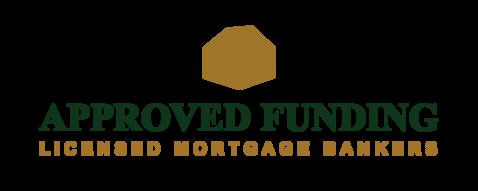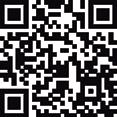


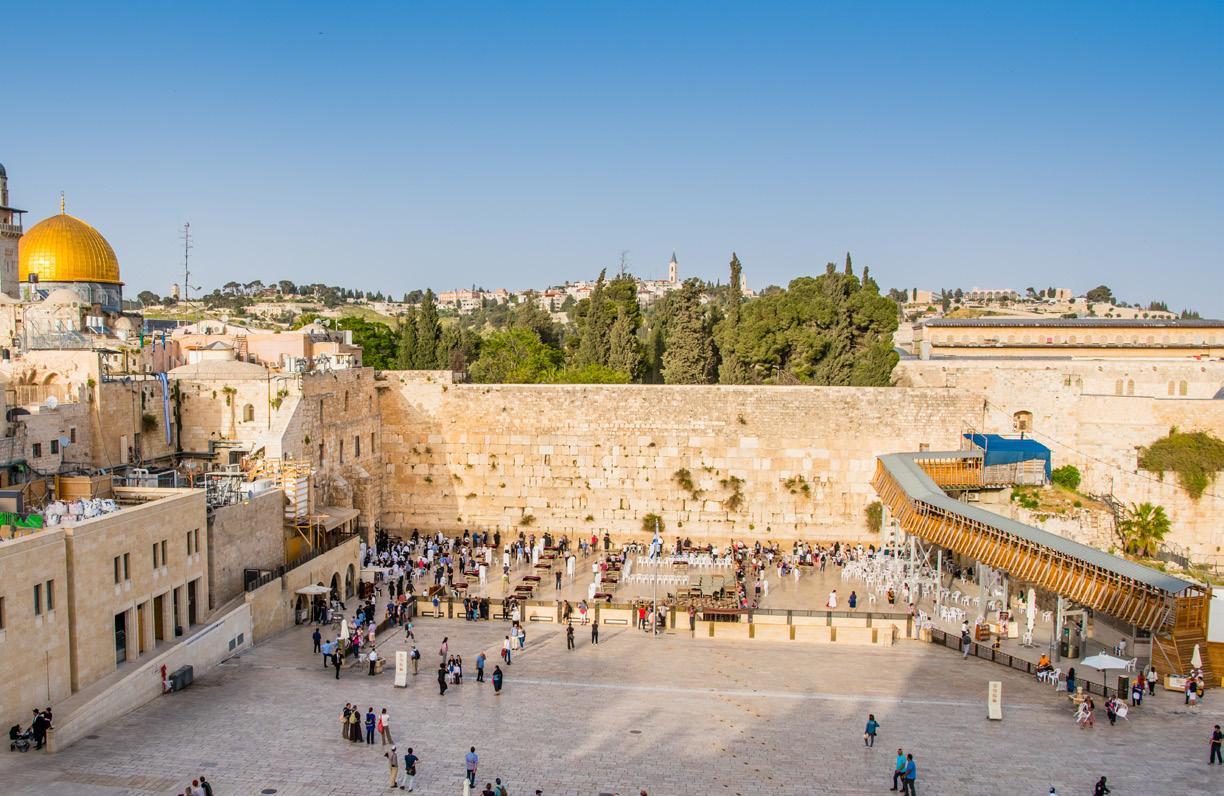
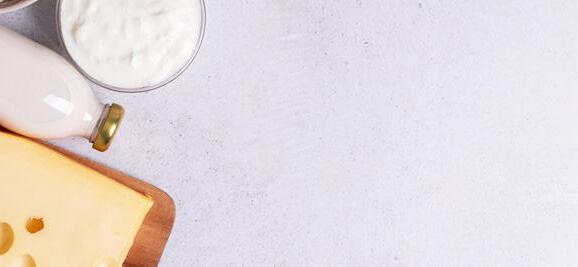



























Serves: 6
Fleishigs Issue #59
A creamy base is all the rage and don’t skimp on the herbs — it makes this dish pop!
3 Persian cucumbers, diced
2 firm tomatoes, diced
3 radishes, diced
2 scallions, thinly sliced
½ cup mixed chopped herbs (parsley, dill and/or cilantro)
Juice of 1 lemon
½ teaspoon kosher salt, plus more to taste
3 tablespoons extra-virgin olive oil
1 (8-ounce) container Tnuva quark
Freshly ground black pepper, to taste

1. Toss cucumbers, tomatoes, radishes, scallions and herbs with lemon juice and salt.
2. Spread quark onto a serving plate or platter, then top with salad. Drizzle with olive oil and a sprinkle of pepper. Season with more salt, to taste.
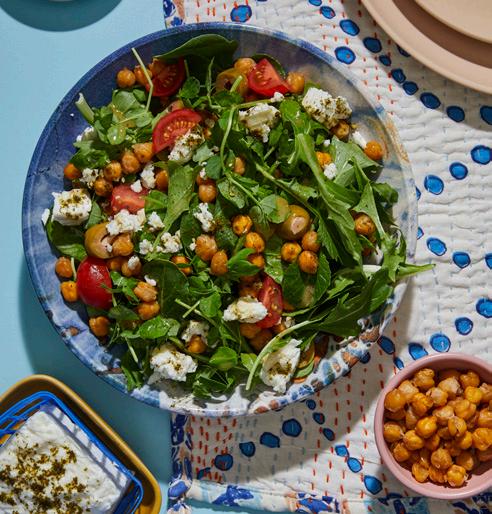
Serves: 6-8
Fleishigs Issue #36
This is an Israeli take on the classic Greek salad — there’s saltiness from the feta, freshness from the vegetables, tanginess from the vinaigrette and texture from the roasted chickpeas.
FOR THE VINAIGRETTE:
¼ cup olive oil
¼ cup fresh lemon juice
1 tablespoon balsamic vinegar
1 tablespoon honey
1 clove garlic, minced
1½ teaspoons za’atar, plus more for garnish
½ teaspoon freshly ground black pepper
½ teaspoon kosher salt
FOR THE SALAD:
6 cups mixed greens
1½ cups sliced tomatoes
2 Persian cucumbers, sliced
½ cup olives
1 cup crumbled Tnuva feta cheese, divided
1½ cups Roasted Chickpeas
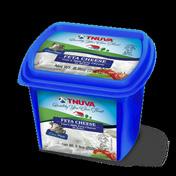
1. For the vinaigrette, add all ingredients to a jar, seal tightly and shake until fully emulsified.
2. Toss greens, tomatoes, cucumbers and olives in a large bowl. Add ½ cup feta and vinaigrette; lightly toss to coat. Top with remaining ½ cup feta and a sprinkle of za’atar.

Serves: 8
Fleishigs Issue #59
This dish is inspired by Fiori at the Jerusalem First Station (a touristy spot for dining, music and events), which is in walking distance to the Inbal, where we typically stay when we visit Israel.
1 pound uncooked pasta of choice
2 tablespoons extra-virgin olive oil
3 cloves garlic, thinly sliced
10 ounces cooked beets
⅔ cup whipped cream cheese
⅓ cup goat cheese
⅔ cup grated Parmesan cheese, plus more for serving
¾ teaspoon kosher salt
¼ teaspoon freshly ground black pepper Crumbled Tnuva goat cheese, for garnish

1. Bring a large pot of salted water to a boil and cook pasta until al dente. Reserve 1 cup pasta cooking water, then drain the pasta and return it to the pot.
2. While the pasta cooks, heat oil in a skillet over medium-low heat. Add garlic and cook until golden brown, 1-2 minutes; set aside.
3. Add cooked beets, cream cheese, goat cheese, Parmesan, salt, pepper, ½ cup reserved pasta cooking water and browned garlic (with the oil) to a blender; blend until smooth.
4. Toss beet sauce with cooked pasta to fully coat. If pasta has cooled, stir it over low heat, adding a splash or two of remaining reserved pasta cooking water, as needed, to thin the sauce.
5. Garnish with crumbled goat cheese, toasted walnuts and a drizzle of balsamic glaze.

Serves: 6-8
Fleishigs Issue #47
Spinach and artichoke go hand in hand in so many recipes, and this crowd pleasing quiche is no different! Serve warm or at room temperature.
NOTE: You can also use jarred or canned artichoke hearts for this recipe.
FOR THE TOPPING:
¼ cup Tnuva butter
½ cup bread crumbs
½ cup grated Parmesan cheese
FOR THE QUICHE:
1 frozen Tnuva pastry sheet

1 (10-ounce) package chopped frozen spinach, thawed and squeezed
1 (10-ounce) package frozen artichoke hearts, thawed and chopped
¾ cup shredded mozzarella cheese
¼ cup Tnuva feta cheese
½ cup grated Parmesan cheese
4 eggs
½ cup sour cream
½ cup whole milk
½ teaspoon garlic powder
1 teaspoon kosher salt
¼ teaspoon freshly ground black pepper
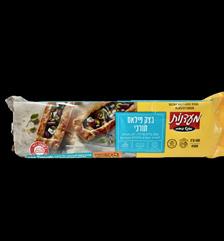
1. For the topping, heat butter in a skillet over medium heat. Add bread crumbs and toast until lightly golden brown. Toss with ½ cup Parmesan cheese; set aside.
2. Preheat oven to 4250F. Place pastry sheet in a pie pan and crimp edges. Place pie pan on a baking sheet and prick center of pastry with a fork. Bake for 10 minutes, then set aside to cool. Lower oven temperature to 3750F.
3. Mix spinach, artichoke hearts, mozzarella, feta and Parmesan cheese. Add to the cooled pie shell.
4. In the same bowl, mix eggs, sour cream, milk, garlic powder, salt and pepper until well combined, then pour mixture into the pie shell. Top with toasted bread crumb mixture. Cook for 4045 minutes, until golden and set. Let cool for 15 minutes before slicing.





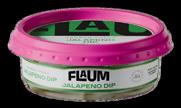

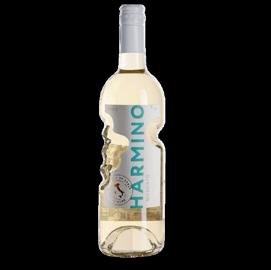





























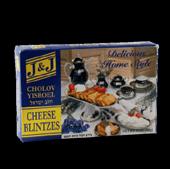




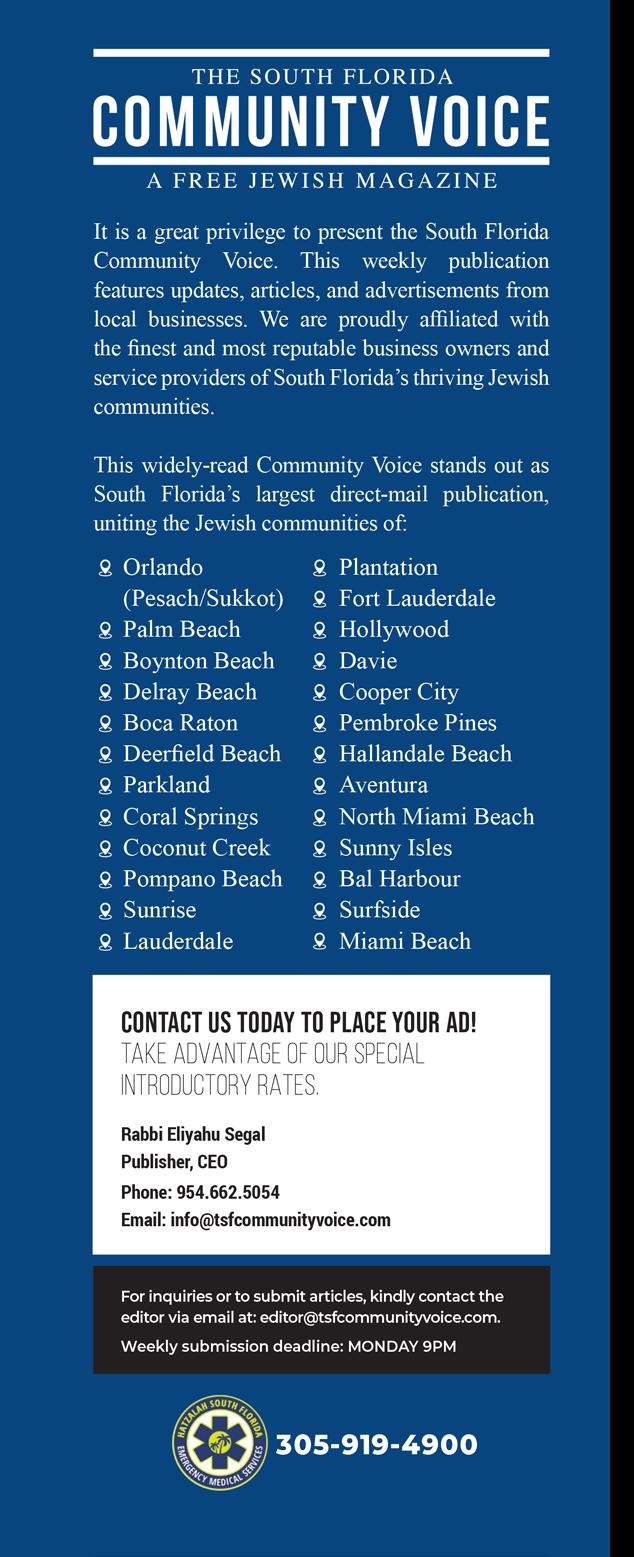


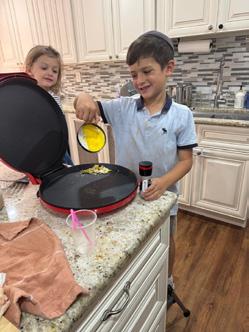

© The South Florida Community Voice Magazine. All rights reserved. Reproduction in printed or digital form in whole or in part in any form without prior written permission is prohibited. The publisher reserves all right to edit all articles for clarity, space and editorial sensitivities. Submissions cannot be returned to sender. The South Florida Weekly Magazine is not responsible for the cash flow of any advertised product or service that appears in these pages. The South Florida Community Voice Magazine assumes no responsibility for the content of articles or advertisements in this publication, nor for the content of books that are referred to or excerpted herein.







































By Sivan Rahav Meir
Am Yisrael Chai: The Quiet Revolution What Should We Call This Era?
It seems to be the dawning of a new Jewish era, and I’m trying to find an appropriate name for it. On the surface, everything appears to be continuing as usual. Political commentators speak with confidence and certainty. Yet beneath it all, a deeper, more surprising story is beginning to unfold—a story of dramatic highs and lows, of spiritual awakening and connection.
Last week, I went to attend the birthday party of Bracha Shilat in Kfar Chabad. She had invited women from across the religious spectrum to participate in a special celebration. Among the speakers was professional dancer Leah Yanai, sister of Moran Stella Yanai, who had been kidnapped from the Nova festival. Leah shared how October 7 changed her life.
She began:
“On October 7, our lives expanded dramatically. We witnessed darkness like never before—but also tremendous light.” From her phone, she read four insights that emerged for her during this time:
“First of all, faith. Pure prayer. A recognition that there is so much that we don’t understand and so much that lies beyond our physical reality.
“Secondly, gratitude.” At this point, people in the audience were confused: How can the sister of someone who was kidnapped

be grateful? Leah explained: “I feel grateful for this difficult test and that it ended the way that it did. This sobering experience was an awakening which led to my third insight—a sense of mission. A person who undergoes a shattering experience must not return to their original comfort zone. They have been tasked with a mission, and when they carry out that mission their spirit is lifted and their soul begins to heal.
“And fourth, unity. Over the course of this crazy journey, I’ve discovered that the Jewish people are unbreakable. We are a holy nation.”
The uplifting story of Agam Berger is familiar to many people, but dozens of other hostages have related the same exact story. You just need to listen. I interviewed released hostage Elia Cohen and
this is what he told me:
“I could feel every prayer that you prayed on my behalf. Every mitzvah that you performed for my sake gave me strength — I could actually feel it in my body.”
Ohad Ben Ami, another released hostage, recently said to Avi Ohana, father of hostage Yosef Chaim Ohana: “I’m a kibbutznik and I’m telling you to keep on praying. We felt your prayers while in captivity.”
Omer Shem Tov surprised the Jewish world by speaking about his special connection to God. Omer’s mother, Shelly, told me this week that charedi schools outside Israel presented a clip from a television program in which Omer speaks about how, while in captivity, he asked God how He was feeling — in other words, how he connected to the “pain of the Shechinahthe Divine presence,” which is a deep Kabbalistic concept. Then he would express his gratitude to God, and only after that, would he pray for what he needed.
Edan Alexander’s grandmother surprised the worldwide press this week when she chose, upon his release, to recite a chapter of Tehillim and to explain the significance of Pesach Sheini, which fell on the day that Edan was released.
Look into the eyes of Eli Sharabi, who shared that sometimes when he tells his story to his psychologist, she starts to cry and he


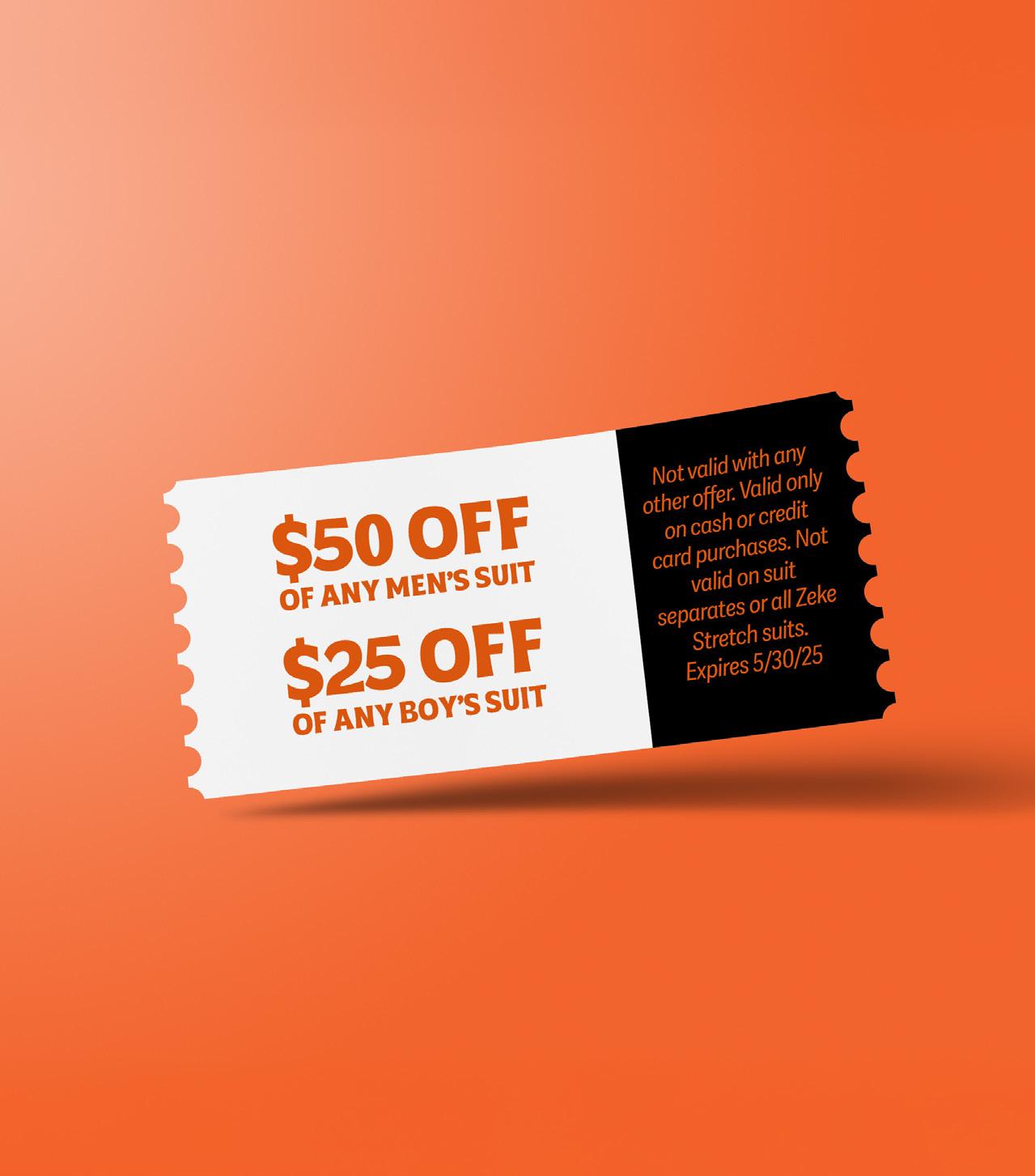


“We’ve been dreaming of Jerusalem for many years. We’re the generation that fulfilled that dream. It shows the sacrifice that was there—the risks that were taken—the desire to get to Jerusalem at all costs.”
— Shay Yasso, an Israeli born in Ethiopia, rescued by the Mossad as a child
Since October 7, the claim that Israel is a racist state and that Zionism is a racist ideology has become a near-daily lie at anti-Israel rallies. But few recent films have done more to debunk that narrative than the popular Netflix drama The Red Sea Diving Resort (2019), starring Chris Evans and Ben Kingsley. The film dramatizes a remarkable and true story: a covert 1984–1985 operation in which Israeli Mossad agents and the IDF rescued thousands of Ethiopian Jews from refugee camps in Sudan.
These Ethiopian Jews had fled a devastating famine and a violent Marxist insurgency that left over a million dead in Ethiopia. Sudan, too, was embroiled in civil war. Amid this chaos, Israel launched “Operation Moses”—a daring mission to bring its people home. Between 6,500 and 8,000 Jews were smuggled out of East Africa and flown to freedom in the Jewish state.
The film concludes with authentic news footage of Ethiopian Jews arriving in Israel, many bending down to kiss the tarmac in celebration—a moving scene that captures the fulfillment of a 2,000-year-old dream.
By Moshe Phillips



But there is more to this story. Much more.
The IDF airlift was not only historic—it is a reminder, now more than ever, of what Zionism truly represents.
It was Prime Minister Menachem Begin who tasked the Mossad with rescuing Ethiopian Jewry. The effort continued under Yitzhak Shamir and Shimon Peres, but it was Begin who launched it. Just as he had opened Israel’s doors to non-Jewish Vietnamese boat people in 1977. Begin’s commitment to human dignity, regardless of race, reflected the teachings of his men-
tor, the great Zionist leader Ze’ev Jabotinsky.
Begin once compared the plight of the Vietnamese refugees to that of Jewish refugees during the Holocaust, referencing the infamous case of the St. Louis:
“We never forgot the boat with 900 Jews, the St. Louis, which left Germany in the final weeks before the Second World War... traveling from harbor to harbor, from country to country, crying out for refuge. They were refused... Therefore, it was natural to give those people a haven in the Land of Israel.”








The rescue of Ethiopian Jews was not just about providing safety—it was about coming home. Israel is not merely a refuge; it is the homeland of the Jewish people. A place where Jewish destiny is shaped by Jews themselves, for the good of Jews everywhere.
Today, Israelis of Ethiopian descent serve as cabinet ministers and Knesset members in Jerusalem, ambassadors, and community leaders. This is Zionism. This is the realization of a centuries-old hope. By 2010, over 110,000 Jews of Ethiopian descent had made their home in Israel. Now the community is estimated at over 160,000.
Long before the phrase “Black Lives Matter” became a global rallying cry, Menachem Begin, the Mossad, and the IDF acted on the belief that Black Jewish lives mat-

tered—and they risked everything to prove it.
The charge that Israel is a racist state is not only false—it is a dangerous and damaging lie.
What other nation in history has gone into Africa not to exploit, colonize, or enslave—but to bring Africans out to freedom, safety, and honor? Israel did. And, as The Red Sea Diving Resort reveals, the U.S. government played a supporting role.

Daniel Sahalo, an Ethiopian Jew and historical consultant for the film, told Time Magazine that Mossad agents “risked their lives every day for almost three years.” That is Zionism. That is Israel. A brother being responsible for a brother. It is beautiful. And it is eternal—just like the Jewish people’s bond with Jerusalem.
Happy Yom Yerushalayim!
Moshe Phillips is national chairman of Americans For A Safe Israel (www.AFSI.org), a leading pro-Israel advocacy and education organization.


























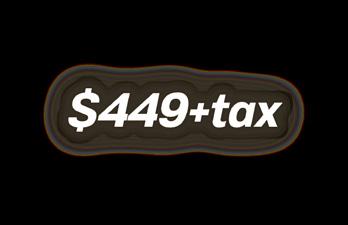




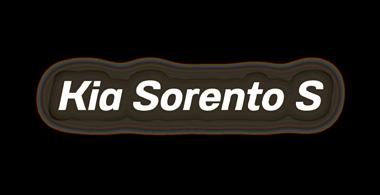


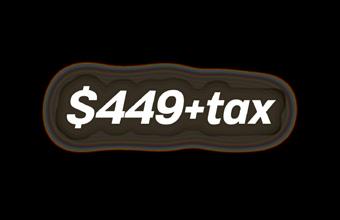












Thanks to the relentless advocacy of Teach Florida, Yeshivas and Jewish day schools across the state of Florida are receiving an additional $500 in transportation funding per student for the 2024–2025 school year. This brings the total allocation to $1,700 per student under the Jewish Day School Security Grant.
This increase is not just about convenience—it’s about safety and sustainability. Teach Florida, originally created the Jewish Day School Security Grant in 2017, under the administration of then Governor Rick Scott and championed by Representative Randy Fine. Under Governor Desantis’ leadership Teach Florida has been able to increase the Jewish Day School Security funding from $654,000 to $20,000,000 annually. Teach Florida continues to lead the charge to


ensure Florida’s Jewish students are safe and secure.
This funding isn’t just about buses—it’s about protecting our children. In the words of Eli Hagler, Executive Director of Brauser Maimonides Academy (BMA):
“Teach Florida’s leadership on transportation and security has been transformative for our school. The additional funding has not only eased the financial burden on families—it has helped us secure our campus during drop-off and pick-up times, which is vital in today’s environment. We’re deeply grateful for their partnership and tireless advocacy.”
Raizy E. a parent at Yeshiva Toras Chaim Toras Emes also shared:
“After October 7th, I was scared to send our children to school.
Knowing that Teach Florida assisted Yeshiva Torah Emes Toras Chaim in expanding our security program and transportation needs made a huge difference. I feel more confident sending my children to school with these safer logistics in place.”
Melissa Glaser, Executive Director, Teach Florida:
“Teach Florida is actively engaging with state legislators to secure the Jewish Day School Security Grant in the 2025–2026 state budget. Our advocacy is necessary to ensure robust, uninterrupted funding for our student’s security. We must protect Jewish children, and the State of Florida is a wonderful partner in ensuring this remains.”

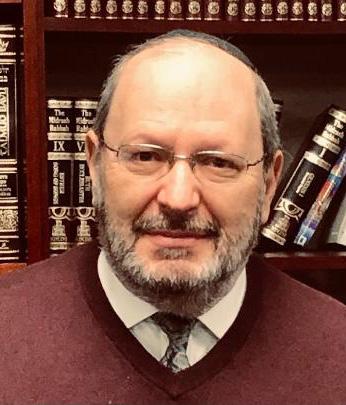
This article is based in part on an essay by this writer for “GenAleph,” sponsored by the Orthodox Union(“OU”).
One of the most revealing and illuminating Jewish principles relating to parenting is Chanoch L’naar al pi Darko (Mishlei 22:6) – educate (and teach) a child according to his way (or ability).
This powerful axiom, strongly implies that as parents, we need to adjust or modify our parenting approach and expectations in accordance with a child’s ability, capacity or capability.
This implies that there are a variety of specific parenting approaches, habits or principles which parents may apply when teaching or educating their children.
The following are eight of those specific and at times overlapping practices or principles of Jewish parenting.
Each one represents a universe
By Dr. Chaim Y. Botwinick
of exciting and demanding challenges and opportunities for today’s Jewish parents and families.
The partnership as presented is not one which engenders a transactional relationship, but one which is inextricably linked to the holy bond and kedusha that exists between the child, parent and HaShem. This “partnership” or bond must be viewed as a privilege, granted by HaShem. It is not an entitlement but rather an obligation.
From the moment a couple decides to have children, there is an unbreakable bond and commitment between the couple (parents) and HaShem to ensure that their child or children will grow up develop themselves in a healthy and wholesome environment.
Parents are viewed as partners in HaShem’s creation of each human being, therefore the commandment of Kabed et Avicha v’et Imecha, to “honor ones father and mother” Shmot 20:21), is the fifth commandment in the Torah with profound importance and significance.
As parents, we must continue to be mindful of this holy partnership and alliance. It must be celebrated continuously as it provides all of us with a moral compass and sense of clarity, deeply anchored in the Torah.
When giving a directive or in-
structions to a child, it is essential that the directive be embedded in understanding and context. Otherwise, it may be of little to no value.
Consistency is exhibited when a parent models behaviors commensurate with clear expectations.
For example, if a child witnesses a parent davening and putting on tefillin every morning, giving tzedaka, or lighting Shabbat candles Friday evening, than it increases the likelihood that the child will follow suit. But, when these behaviors are absent or sporadic, they will have a tendency to dissipate and eventually disappear from the child’s repertoire of Jewish behaviors, involvement or attitudes. This also holds true for reciting grace after meals, reciting brachot, attending minyanim, doing acts of chesed and other important religious obligations, rituals, mitzvot and acts of chased.
Finally, most children, not unlike many adults, seek and demand clarity. Instructions, directives and requests which are “fuzzy” in nature, end up in the “fuzzy bucket” This means that they will not have true clarity as to why a particular comment, behavior or action is or is not appropriate or acceptable.
More often than not, parents have the tendency to take the short-cut and are vague in their directives and expectations.
The need for parents to be clear and consistent are fundamental to a child’s growth, maturity, understanding and development. It may

require extra time, energy and effort on the part of parents, but, the clearer and more consistent a parent is with their children, the healthier and more stable the parent/child relationship.
According to the great Vilna Gaon (1720-1797), there are three aspects to consistency and clarity. They are: hearing, understanding and accepting.
In order for a child to fully understand the importance of an issue or concern, the child must first be exposed to clearly hearing what the parent is saying; understanding why the parent is saying and doing and finally, accepting what the parent is trying to convey –whether it be verbally or through non-verbal ques.
According to many commentaries, our children are the most precious diamonds in our possession. We bring them into this world, nurture them as they grow and develop, and do everything possible to ensure that they pursue a path imbued with derech ertz, Jewish values and middot tovot.
All of the other attributes and characteristics are important. But, they do not compare to the profound love and affection we have for our children.
Although the Torah does not explicitly command or demand that we love our children, there are many references to the concept of love which strongly suggests and supports this relationship.
They include:
“Denying a child’s religious knowledge robs the child of an inheritance (Sanhedrin 91b)
“Never threaten children, either punish them or forgive them”
The challenge of how we show or exhibit love to our children is not anchored in the “if”, but rather the “how”.
According to our Sages (Sanhedrin 107b), it is said that children need to be pushed away with the left hand and brought closer with the right.
Effective Jewish parenting has its foundation in the very manner in which we bestow love on our children. Whether it be blessing our children Friday night prior to Shabbat Kiddush or other ways in which we demonstrate our true and sincere love for them, one thing is clear, ahava for our children will always endure. It is a relationship parents have with their children which is unlimited, timeless and everlasting.
An integral component of effective parenting is our obligation and commitment to preserver in our mission to ensure a child’s health, growth and development.
Parenting should never be viewed as a one-off obligation, burden or commitment, but rather as an ongoing challenging and at times arduous and difficult task on many levels.
As such, it is a parent’s unswerving obligation to consciously “stay the course” and to never take our “foot off the accelerator”.
One has only to read the words of Sh’ma Yisrael, the central affirmation of faith, to understand the profound importance of perseverance.
“And you shall love HaShem your GD with all of your heart, with all of your soul and all of your might”
“And, these words shall be in your heart”.
Children, know, feel and sense when their parents persevere. It leaves a very strong impression upon them regarding the message their parents are trying to convey, and their commitment to the value and power of perseverance.
When thinking about the power of positivity and its relationship to effective parenting, I am often reminded of the statement “it’s easier to attract bees with honey then with vinegar”.
There are those parents who are overly demanding and who are beyond steadfast in their conviction to either force or demand that their children pursue a particular path or course of action. Then, there are those who feel that sparing rod is paramount and that a kinder and gentler approach is the more attractive or preferred course of action.
The concept of “positivity” as an effective parenting approach is paramount.
The great Lubavitcher Rebbe z”l was one of the staunchest advocates for positive thinking. His philosophy “if you think positive, it will be positive” has had a profound impact on our way of thinking and the Jewish community.
“Positivity” is powerful. When parents encourage and exhibit positivity, it definitely impacts on a child’s and a family’s state of mind, demeanor and attitudes.
In the final analysis, it’s just as easy to smile as it is to frown. Opting for smiling goes a longer way than one can ever imagine.














There is nothing more challenging than having a parent who is not “present” in a child’s life.
The concept of being present, is not only a physical manifestation, but one which involves being present psychologically and emotionally in a child’s life.
The Torah teaches us that when the B’nai Yisrael gathered at the base of Har Sinai to receive the Torah, they were K’ish Echad, B’lev Echad - Like one person with one heart.
The “one heart” phrase is a beautiful metaphor with a series of very revealing commentaries. The children of Israel were not only physically present but they were present in mind, heart and soul.
This presence represents a state of being that transcends the physical.
Children must know and feel secure that their parents are emotionally connected to them. It is also essential that parents make themselves available to their children and create a shared headspace for support, love and understanding.
One of most powerfully important parenting challenges and characteristics are those which involve modeling “Jewish” behavior.
The manner in which parents model middot tovot, derech eretz and shmirat haLashon, just to name a few, is probably one of the most critically important characteristics of effective parenting.
Rabbi Yaakov Yisrael Kanievsky, z”l, known as the the Stiepler Rav, is quoted as saying that “role modeling is more than 50% of child-rear-
ing”. As such, one of the most important challenges for our community is to ensure that our parents have the resources to assume these awesome responsibilities.
Finally, we know how impressionable our children are; and, that they are greatly dependent upon others for guidance, inspiration, validation and direction.
Being exposed to parents who are true Torah-observant role models is no longer a luxury….. It is an imperative.
More often than not, most parents “know” their children and have a pretty good sense regarding their children’s likes, dislikes, sensitivities and attitudes. This is indeed a bracha.
Having said that, as much as we think we “know” our children, there is a remote possibility that there are those parents who only know their children in their familial orbit or presence, and not necessarily when their children are either out of the home, unsupervised, in school, camp with friends or on their own.
This is not to suggest that these disparities exist, but it does encourage parents to place these important challenges, issues and concerns on their radar.
The lesson here is that irrespective of how well we think we know “everything” about our children, there may be much that we do not know. This is just a reality of which we have no control.
There is obviously a very fine line between knowing, the need to know and depending upon age, providing our children with
healthy spaces they require in order to develop and grow.
Nevertheless, it is imperative for parents to develop close, healthy and trusting relationships with their parents and vice versa.
The seeds of trust that parents sow with their children at an early age will necessarily guarantee meaningful relationships between parents and their children, as their children mature.
Parenting attributes and approaches from a Jewish perspective, are but a small fraction of the characteristics of effective parenting.
As we respond to the evolving religious, social, emotional and cognitive needs of our children and their families, it is imperative that our Jewish community continues to explore new modalities, models and opportunities for effective parenting.
It is our hope and prayer that our parents will be blessed with inspiring opportunities to help guide their children in a meaningful manner, supported by Torah values, obligation and understanding Together, as a community, we can do this!
Dr. Chaim Y. Botwinick is a senior excusive coach and an organizational consultant. He served as president and CEO of the central agency for Jewish education in Baltimore and Miami; in addition, he was head of school and principal for several Jewish day schools and yeshivot. As an Influencer in education, he has published and lectured extensively on topics relating to education, resource development, strategic planning and leadership development. He is co-founder of LEV Consulting Associates and producer/host for the Chinuch Horizons podcast. Dr. Botwinick is author of “Think Excellence, Brown Books, 2011.



Torah Academy is proud to announce the launch of LIFT Junior, a groundbreaking new program designed specifically for our Early Childhood Center (ECC). This initiative is an extension of Torah Academy’s successful yeshiva-wide LIFT (Living Independently and Free from Technology) program initiated by BMS Menahel Rabbi Eli Zoldan, which has been running in Grades 1–8—and now, for the first time, is being tailored for our youngest learners.
As ECC Director Mrs. Leah Mond explains, LIFT Junior’s mission is simple but revolutionary: to make “no tech” cool. The program reframes screen-free living not as a negative or restrictive approach, but as an empowering, positive choice for children and families. “Every day in the ECC, we nurture creativity, curiosity, and connection,” says Mrs. Mond. “Now, with LIFT Junior, we’re bringing that same philosophy into the home, helping families create environments where children can thrive without the crutch of devices.”
The launch event featured renowned educator and therapist Rabbi Avrumi Robinson, Menahel of Yeshiva of South Shore, whose expertise has guided similar programs across the country. His presentation highlighted the research: early exposure to screens can disrupt attention, stunt creativity, and shape unhealthy habits. But when families come together with clear, age-appropriate boundaries, children gain the freedom to grow,
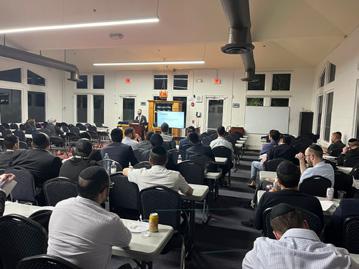



explore, and develop confidence without digital distractions.
Rabbi Reuven Feinberg, Dean of Torah Academy and one of the visionaries behind the LIFT initiative, emphasized the broader significance of this expansion. “LIFT Junior is not just another yeshiva program—it’s monumental,” Rabbi Feinberg shared. “It has the potential to shape how our children engage with the world, how they learn, and how they build lifelong habits of curiosity, focus, and Torah-centered living. This is the kind of change that can ripple into their entire future.”
For this year, LIFT Junior focuses on the Pre-K and Kindergarten levels, asking families to commit to no screen-watching from Monday to Thursday and limiting gaming to short, educational segments.


In addition, participating in the program includes a pledge for children to avoid personal devices and smartphones through eighth grade. Importantly, the program is not only about the children—it’s about the whole family. Parents are encouraged to model mindful device use, shifting essential tasks (like shopping or scheduling) to the computer so children don’t see adults constantly on their phones.
Mrs. Mond, sensitive to the challenges families face when making these changes, speaks passionately about the impact: “It’s not easy at first, but the difference it makes in your child’s attitude and daily life is incredible.”
Together, as a yeshiva community, we are giving our children the greatest gift: the chance to grow up engaged, imaginative, and free.

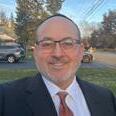
A recruiter recently shared with me an experience he had with a job candidate. They had found him a place that seemed to be a perfect fit for both the employer and prospective hire. It met his abilities and career goals, and they discussed with him how he would be able to grow in the position. They talked about the expected salary, and though it was lower than he wanted, there was serious room for opportunity in the future, and the employers had made it clear what their top number was at this time. He went to the interview and the recruiter was waiting for the good news. But it never came. Instead, they said, “He’s not for us.”
You see, when the employer asked the man what salary he was looking for, he blurted out a number that was 50% higher than what he and the recruiter had discussed. He knew their top number. The employer knew their top number. The recruiter knew their top number. This spooked the employer and the job offer was not made. When the recruiter asked the man what possessed him to answer as he did, the man replied, “I figured I’d try my luck.” Well, he tried and didn’t get the job.
The recruiter’s point in telling the story was that pushing your luck may not be the best plan. One moment of impulsivity and the opportunity was lost, plus he made the recruiters look foolish.
I thought about it. As much as we speak about free will, Hashem will take away someone’s bechira when necessary. Despite the recruiter’s best intentions, this man was NEVER going to get the job that day. How do I know? Because he didn’t.
By Rabbi Jonathan Gewirtz
If he was meant to get it, then the employer would have countered with the lower number, and the guy would have accepted. For whatever reason, Hashem put it in this man’s head to say something that would put a stop to his hire.
The concept of free will versus Divine Providence is a complex one, but let me try to simplify my understanding. Hashem doesn’t need us to do things. He can do it all, but He gives us the chance to be his partners and benefit from our efforts. But this is HIS business, and He has a plan for how things should run. We can try to accomplish things, but in the end, it will be Hashem’s decision what actually happens.
To digress for a moment, this is heartening, because when we make a valiant attempt and still fail, we can know that it wasn’t meant to be. As I tell my kids often, “If it happened, it was meant to happen.”
The only place our efforts make an actual difference is in spiritual matters. Hakol b’yedei shomayim, chutz m’yiras shomayim – everything is in the hands of Heaven, except fear of Heaven. Hashem can’t make us fear Him of our own free will, so we become the managing partner in that respect. But let’s go back to free will. If we can’t change the outcomes, what is the point of trying? Where does our free will come into play?
The simple answer is that if we try to make good happen, then whether or not it does, we will be better off for having chosen to try. If we try to make bad happen, we will be held accountable for our choices too. I recently had an epiphany on the choices we can make while I was thinking about our hostages held
in Gaza, may Hashem bring them home soon.
If the outcome is decided already, I can still choose what hishtadlus I make. Hostage families have been making efforts to bring their loved ones home, and I was reflecting on the efforts they made. Let’s assume the things they do will have no impact on when the hostage comes home, or if they will. That’s still Hashem’s choice.
The ones who have been organizing Tehillim and other mitzva groups, or building a shul as a merit, are putting their faith in Hashem. Whether they effect a release or not, at the end of the day, they have made the world a better place. Then there are other families whose efforts are focused on blaming Netanyahu, disturbing others, and fomenting protests. They put their faith in Man. Since Hashem is going to decide the hostage’s fate, they haven’t actually achieved anything, so what do they have to show for their screaming?
We each get to make our choices. Will we fill the space around us with hatred and resentment, or with Emunah and positivity? The results are not in our hands, but the efforts are. If we can remember, that at the end of the day, Hashem decides what we will earn, how we will live, and what we will go through, we can take the time to choose wisely. Hopefully we’ll choose to be partners with Hashem by doing what He’d want us to do, and then we won’t have any regrets.
© 2025 – All Rights Reserved
Did you enjoy this column? Feedback is welcome and appreciated. E-mail info@JewishSpeechWriter.com to share your thoughts. You never know when you may be the lamp that enlightens someone else.





Get ready for an unforgettable summer as Camp Lev opens its doors this summer at the TABR ECC campus in Boca! With a focus on providing an enriching, safe, and fun-filled experience, Camp Lev promises to be the go-to destination for families looking for a summer camp that offers the perfect balance of adventure and excitement for their little children!
Camp Lev is designed for children entering EC2 through Kindergarten – both boys and girls – making it a fantastic option for young campers to enjoy their beginning summer camp experience. It’s a place where kids can develop their social, emotional, and physical skills, all while having the time of their lives in a safe, nurturing environment.
The camp is under the leadership of Mrs. Leah Mond, a beloved educator known for her deep expertise in early childhood development and her warm, personalized care for each child. With years of experience and a true passion for preschool education, Mrs. Mond ensures that every
child is not only safe and engaged, but also deeply nurtured
and supported throughout their summer journey.
At Camp Lev, safety is a top priority. Our team is dedicated to providing a fun environment where children can explore new activities, build friendships, and grow in confidence. The camp will be run with the utmost care, and every activity is designed to ensure that kids not only have fun, but also learn valuable lessons about teamwork, kindness, and the importance of trying new things.
Camp Lev’s staff is handpicked with exceptional leaders running the groups. These caring and dedicated individuals will provide a nurturing, fun, and secure atmosphere for the children, ensuring every day is filled with excitement and meaningful moments following a jam packed schedule!
Camp Lev isn’t just about playtime; it’s about creating a well-rounded, exciting schedule filled with different activities that will keep kids engaged all day long! Whether it’s arts and crafts, games, sports, or interactive learning, there’s always something new for campers to explore. Plus, the PreK and Kin-
dergarten kids will enjoy adventure-filled field trips that offer a fun break from their daily routines!
If there’s one thing that’s guaranteed at Camp Lev, it’s that the kids will get wet – in the best way possible! The camp boasts an exciting waterpark, where kids will splash, play, and cool off every single day. It’s the perfect place to beat the heat, make new friends, and have endless fun under the sun!
Camp Lev is shaping up to be an incredible summer adventure for young children. Whether it’s the thrilling waterpark, the wide range of activities, or the warmth and care provided by the Moros, there’s something for everyone at this one-of-a-kind camp.
So, if you’re looking for a camp that promises a summer of excitement, memories, and growth for your child, look no further than Camp Lev in Boca. Get ready for a summer they’ll never forget!oca!
Torah Academy of Boca Raton is a Yeshiva with preschool, elementary, and separate boys’ and girls’ middle school divisions, serving approximately 840 students this year. For more information, visit www.torahacademybr.org or call 561-465-2200.

By Moshe Phillips
Yom Yerushalayim, or Jerusalem Day, is observed this year from Sunday evening, May 25, through Monday night, May 26. It celebrates the 68th anniversary of the reunification of Judaism’s holiest city.
Today, Israel’s control of the parts of Jerusalem that the Israeli Defense Forces liberated in 1967 is consistently and vehemently contested by Arabs, who claim those areas rightfully belong to them. This claim is a cornerstone of the daily anti-Israel propaganda disseminated by Mahmoud Abbas and his Palestinian Authority associates.
Here’s the thing, though: the area Abbas refers to isn’t “East Jerusalem” at all. It’s just Jerusalem. What’s more, there is no political entity known as “East Jerusalem”—not now and not at any point in history.
The latest of these claims came on May 17 in Baghdad, where Abbas addressed fellow strongmen
and despots at their 34th Arab Summit.
Abbas said: “We highly commend the role of the Kingdom of Saudi Arabia, which chairs the Arab-Islamic Committee. We thank all its members for their efforts in garnering international support for the realization of an independent Palestinian state with its capital in East Jerusalem and for securing global recognition of this state.”
Immediately after the Old City was liberated, Rabbi Tzvi Yehuda Kook (1891–1982), son of Rabbi Abraham Isaac Kook (1865-1935), the first Ashkenazi Chief Rabbi, told news reporters:
“We announce to all of Israel, and to all of the world, that by Divine command, we have returned to our home, to our holy city. From this day forth, we shall never budge from here! We have come home!”
What was Rabbi Kook referring to, if not what is now labeled “East Jerusalem”?
“East Jerusalem” is simply Je-
rusalem. Every biblical mention of a specific location in Jerusalem refers to an area that Abbas wants Israel to surrender. The term does not appear in the Torah because it is a modern political invention. When Israel’s enemies created this false name for Jerusalem’s Old City and surrounding neighborhood, including the Western Wall, it was meant to sever the connection between Israel and Judaism’s holiest sites.
The truth is that Yom Yerushalayim celebrates the end of the Arab world’s first successful attempt to separate Jerusalem from the Jewish people.

Immediately after Israel declared its independence, the Arab Legion from what is now Jordan attacked Jerusalem. After intense fighting and a brutal siege, the Jewish Quarter of the Old City was lost to the Arab Legion on May 27, 1948. The surviving Jewish residents sought refuge in Jerusalem’s New City. When the IDF liberated


the Old City in June 1967, it found 34 of its 35 synagogues either completely or partially destroyed. So, too, were the yeshivahs. Hundreds of Torah scrolls and thousands of Jewish religious books had been desecrated and burned.
In another blatant violation of international law, the Jordanians forbade Jews from visiting the Old City during the years they illegally occupied Jerusalem. Numerous requests were made. Historical records show that in 1954, Gen. Vagn Bennike, then the chief of staff of the U.N. Truce Supervision Organization (UNTSO), relayed to the Jordanians a request by a small number of Jews “to cross into the Old City to offer prayers at the Western Wall.”
Similar appeals were made to U.S. government officials. In response to one such petition, Assistant Secretary of State Henry Byroade responded that because of “unfortunate tension” between the Jordanians and the Israelis, a “practical arrangement cannot be worked out.”
That Jews were not just able to visit the Western Wall but live again in the Old City is what is being celebrated on Yom Yerushalayim. Tragically, there are elements within the American Jewish community who would have U.S. Jews believe that what they call “East Jerusalem” should not be part of Israel.
In a March 30, 2022, article on its website, J Street declared: “East Jerusalem” has been under Israeli control since 1967, and was annexed in 1980, which was internationally condemned as an illegal occupation. Ever since then, the right-wing settlement movement,
which seeks a ‘unified Israeli capital,’ has been pushing to move Palestinians out of East Jerusalem and Israelis in.”
How can any American Jewish organization that advocates for parts of Jerusalem to be Judenrein be welcomed in our synagogues?
J Street is not alone in its repeated use of the term “East Jerusalem,” even though no such place exists. Rep. Rashida Tlaib (D-Mich.) used it in a May 14 press release promoting her nakba anti-Israel legislation.
Hopefully, one day soon, the dangerous fiction of “East Jerusalem” will be a term uttered only by non-Jewish extremists.








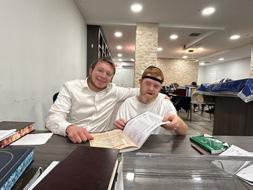

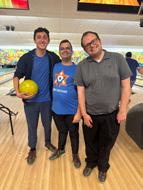





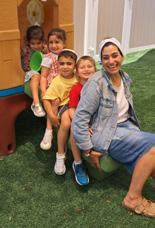

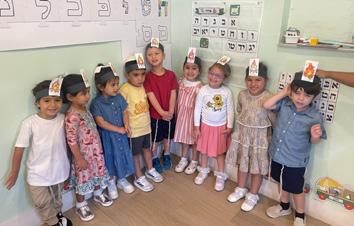




Sunday to Thursday: 12pm - 10pm Friday: 11am - 3:30pm OPENING HOURS Scan the code to order!

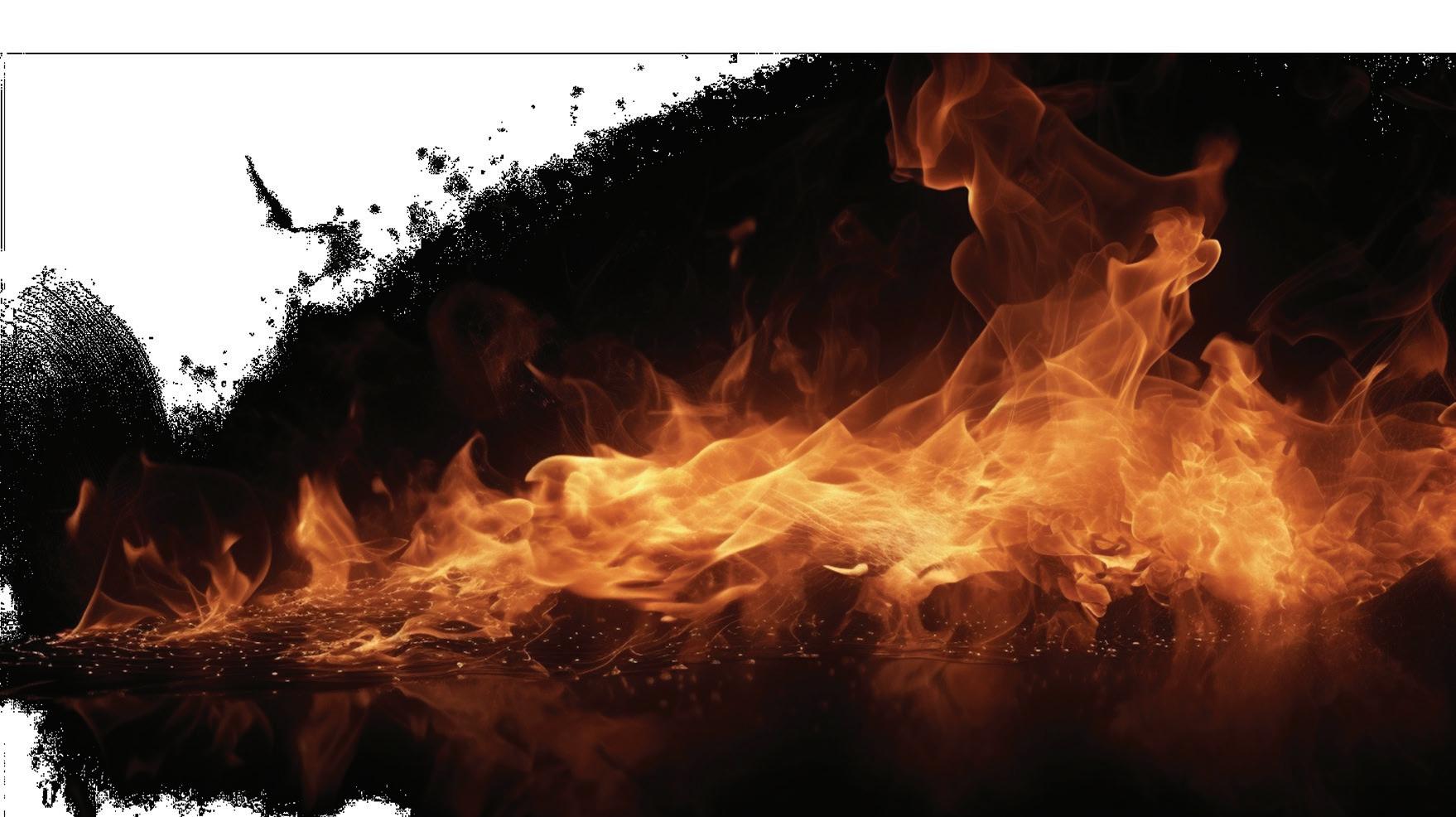








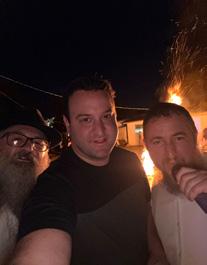










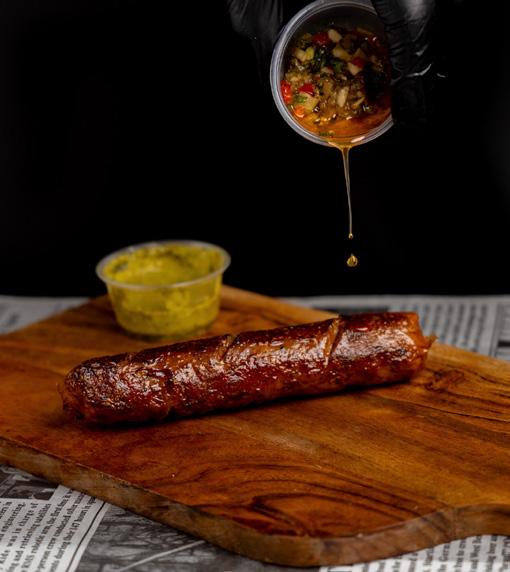

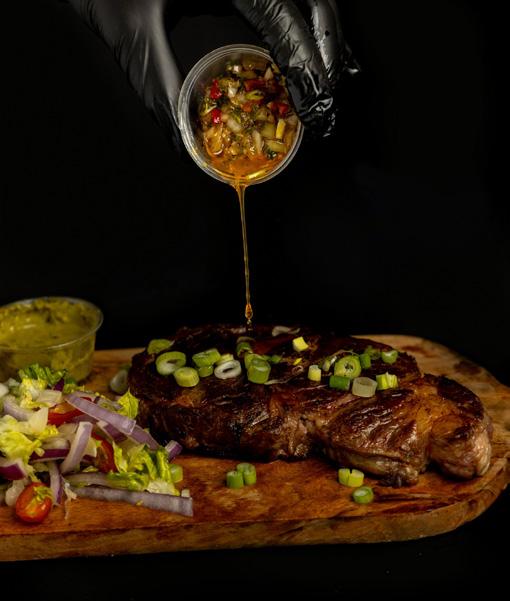














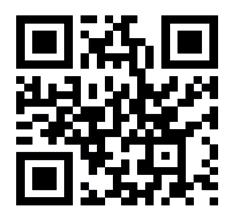
If you know someone living with Parkinson’s disease, you’ve likely seen how it impacts daily life— slower movements, stifness, balance issues, and a gradual loss of independence. But there’s a growing body of evidence that shows one unexpected activity can help fight back: boxing.
At Florida Movement Therapy Centers, we ofer Rock Steady Boxing, a non-contact, evidence-based boxing program designed specifically for individuals with Parkinson’s and similar neurological conditions. Developed in 2006, Rock Steady Boxing has helped thousands of people across the country improve strength, coordination, and quality of life. This program
isn’t about fighting opponents— it’s about fighting back against the symptoms of Parkinson’s. Rock Steady combines footwork, punching drills, and voice activation exercises to challenge the brain and body. It’s safe, engaging, and efective for people of any age or stage of diagnosis.
We’re proud to be the only Rock Steady Boxing providers in both Boca Raton and Boynton Beach, bringing this nationally recognized program to our local community with a team of trained therapists and certified coaches who tailor every class to meet each participant’s needs.
While Rock Steady Boxing ofers powerful benefits, it is designed
as a complementary class and is not intended to replace traditional therapy. For best outcomes, it is most efective when paired with ongoing physical, occupational, or speech therapy as part of a comprehensive care plan.
Whether someone has just been diagnosed or has been managing Parkinson’s for years, movement matters. And Rock Steady Boxing provides more than just physical benefits—it builds confidence, community, and hope.
Call our Boca Raton or Boynton Beach location today to learn more or to schedule a free consult. Let us help someone you care about discover their strength—one punch at a time.










By Dr. Sarah Rosanel, MD FACC, Concierge Physician in Miami Florida - Internal Medicine Specialist/ Family Medicine and Cardiologist
For years, Johnathan, a 43-yearold husband and father, considered himself health-conscious. He exercised, ate well, and avoided cigarettes and alcohol. But there was one habit he never thought twice about—his nightly marijuana use.
Like many people, Johnathan believed marijuana was safe, even beneficial. He used it to help with sleep and anxiety, convinced that it was a natural alternative to prescription medication. But what he didn’t realize was that this “harmless” habit was silently damaging his heart.
One evening, after his usual routine of smoking marijuana before bed, Johnathan suddenly felt an intense pain in his chest. His heart was racing, and he struggled to catch his breath. At first, he thought it was just stress, but when the pain didn’t go away, his wife rushed him to the emergency room.
Doctors quickly ran tests and delivered shocking news—Johnathan had suffered a heart attack. Further tests showed that his arteries were narrowing, a condition known as coronary artery disease (CAD). The doctors asked about his lifestyle, and when he mentioned his long-term marijuana use, they weren’t surprised.
While marijuana is often praised for its ability to help people relax, sleep, and even ease pain, it has

a hidden cost that few people know about—serious heart risks.
• Raises Heart Rate and Blood Pressure: Right after using marijuana, the heart has to work harder, increasing the risk of a heart attack.
• Increases the Risk of Heart Disease: Studies show that regular marijuana users have more plaque buildup in their arteries, which can lead to blockages and heart attacks.
• Triggers Dangerous Heart Rhythms: Some people experience palpitations or irregular heartbeats, which can become life-threatening over time.
Johnathan had no idea that his daily habit was slowly putting his heart in danger. And he’s not alone—many people assume marijuana is completely safe because it comes from a plant. But just like any other drug, it has risks, and for some people, the price is too high.
After his heart attack, Johnathan’s doctors told him he had a choice: continue using marijuana and risk another heart attack, or quit and protect his heart. The decision was clear. He immediately stopped using marijuana and
focused on improving his heart health.
“I never thought marijuana could hurt me,” Johnathan says. “If I had known earlier, I would have quit years ago.”
If you or someone you love uses marijuana, it’s important to be aware of the risks:
• If you have high blood pressure, heart disease, or a family history of heart problems, talk to your doctor before using marijuana.
• If you experience chest pain, palpitations, or dizziness after using marijuana, don’t ignore it— seek medical help.
• Remember that just because something is natural doesn’t mean it’s harmless.
Johnathan was lucky—he got a second chance. But not everyone does. Understanding the risks can help prevent a tragedy before it happens. Your heart is too important to take that risk.
Dr. Sarah Rosanel is a dedicated concierge physician based in Miami, FL, specializing in personalized healthcare tailored to the unique needs of her patients. With a holistic approach that blends traditional medicine, lifestyle interventions, and functional medicine, she empowers individuals to achieve optimal health and well-being.
As an expert in Concierge Medicine & Cardiology, Dr. Rosanel integrates cutting-edge medical treatments with holistic methodologies, ensuring comprehensive care that goes beyond symptom management to address the root causes of health concerns. Beyond her medical practice, Dr. Rosanel is a devoted mother to Ariel, Zev, and Shirley, balancing her passion for healing with family life.
* Book an Appointment: Call or text (646) 467-4368 | Miami, Florida email: info@DrRosanel.com

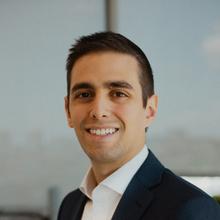



1. I’m made of stone, I’ve seen your tears, You face me through the exile years. You pray, you sing, you sometimes cry, I hold your hopes beneath the sky. What am I?
2. I once stood high in glory’s flame, Two times rebuilt, then lost to shame. Now all that’s left is holy ground, Where dreams of old are still profound. What am I?
3. I hold the scrolls, the sacred word, Where Jewish voices still are heard. Within my courts, Torah is taught, In every hall, with wisdom sought. What am I?
4. I rest atop the Temple site, My gold-lit walls reflect the light. I house your past, your deepest ties, Where prayers like birds toward heaven rise. What am I?
5. I lead the song, I teach, I guide, I walk with Torah at my side. In Jerusalem I serve with care, To lift the soul with every prayer. What am I?
6. I’m where you walk, so old, so dear, Each stone you touch brings history near.
Through every gate and winding lane, The Jewish heart walks here again. What am I?
7. I stand where kings and prophets dwelled, Where ancient voices once rebelled. David’s city, proud and grand, With holy steps upon my land. What am I?
8. I light the flames on nights so bright, Recalling oil and temple light. In Jerusalem, my glow is seen, A miracle in winter’s sheen. What am I? ANSWERS: 1. THE WESTERN WALL (KOTEL) 2. THE TEMPLE (BEIT HAMIKDASH) 3. YESHIVA 4. TEMPLE MOUNT (HAR HABAYIT) 5. RABBI 6. OLD CITY (IR HA’ATIKAH) 7. CITY OF DAVID (IR DAVID) 8. CHANUKIYAH / MENORAH
Safrus Direct
786-579-0535 |office@safrusdirect.com
V&N Cleaning Service
561-860-0936
$10 off 1st cleaning, $10 off 2nd cleaning. We clean corners, not cut them!
Coolstar Air Service llc A/C Install & Repair (954) 200-1369 | coolstarair@yahoo.com
Fraida Perelstein, Nanny/Childcare/Elder Care:
40+ years of experience, seeks a full time or part time roles in the Miami area. Excellent references available; 347-446-1833 | funkymom63@gmail.com
To place a Business Directory/Classified Listing contact: andrea@tsfcommunityvoice.com



in Honor of
1. Old but Gold: Jerusalem is one of the oldest cities in the world, with a history spanning over 5,000 years.
2. Western Wall Wonders: The Western Wall, also called the Wailing Wall, is the last remaining wall of the Second Jewish Temple and a sacred prayer site.
3. No Skyscrapers in Sight: Due to strict building regulations, Jerusalem has no skyscrapers—most buildings are made of the iconic Jerusalem stone, giving the city its golden hue.
4. City of Museums: Jerusalem has over 60 museums, including the famous Israel Museum, home to the Dead Sea Scrolls.
5. A City Divided (But Together): Jerusalem is divided into four quarters in the Old City— Jewish, Christian, Muslim, and Armenian— each with its own culture and landmarks.
6. Mount of Olives View: The Mount of Olives offers a breathtaking panoramic view
of the Old City and has been used as a Jewish cemetery for over 3,000 years.
7. Underground Wonders: Beneath the city lies an ancient underground world of tunnels and archaeological digs, like the City of David excavation.
8. Jerusalem Marathon: Every year, thousands participate in the Jerusalem Marathon, running through the city’s hills, ancient streets, and historic neighborhoods— one of the most scenic and challenging urban marathons in the world.
9. Jerusalem’s Light Festival: Each summer, the Old City hosts the Jerusalem Festival of Light, where artists from around the world create dazzling light installations on ancient walls and buildings—turning history into a glowing art gallery.
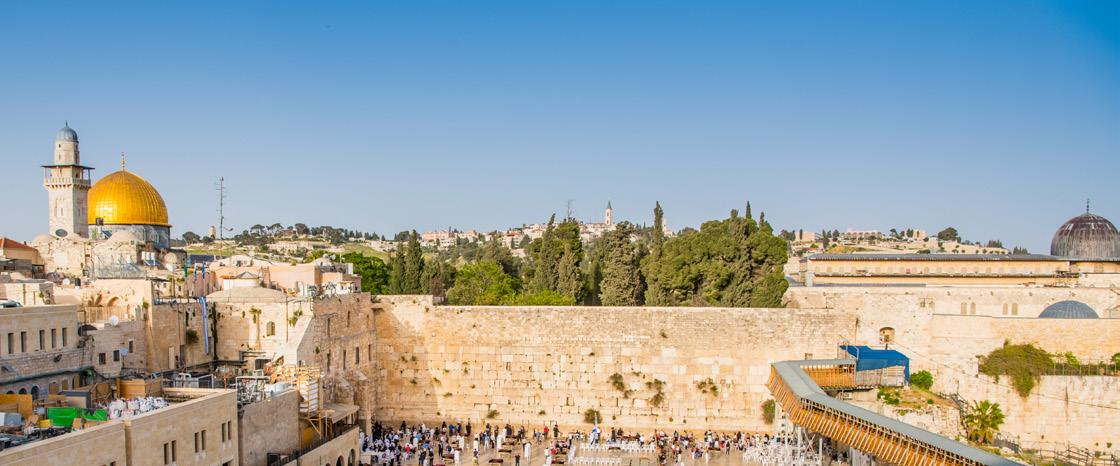
10. Multilingual Melting Pot: You’ll hear Hebrew, Arabic, English, Russian, French, and many other languages on a daily basis— Jerusalem is a global crossroads.

Sponsored by: SMASH HOUSE BURGERS smashhouseburgers.com (305) 351- 9545 CREATE A DRAWING OR A PIECE OF ART ABOUT
First place: $30 gift card | Second place: $20 gift card | Third place: $10 gift card
Email your artwork to editor@tsfcommunityvoice.com
Make sure to include your name, age and city. Entries must be received by May 26.
This type of contest encourages creativity, education and community engagement. It allows kids to express themselves through art, and it also provides an opportunity for their work to be showcased in the magazine.




-Marshmallow Fluff
-Rice Crispies
-Oil
-White Chocolate Chips
-Chocolate Chips
-Small Colorful Sprinkles
-Honey
-Mini Chocolate Cone
-Red Gel Food Coloring
-Parchment Paper
-Piping Bags
-Scissors
-Template
-Microwave Safe Bowl
-Gloves
-Mixing Spoon
-Baking Tray
-Round Cookie Cutter
-Thick Skewer/Chopstick
WIN A PRIZE!
Finish the weekly project, snap a pic, and email us at info@jcm.museum for a chance to win a prize. Let’s get creating!
Daniel was appointed as one of the chief ministers in King Daryavesh’s court. Other ministers became jealous and plotted to get rid of him. They convinced the king to decree that anyone who prayed to any god or man other than Daryavesh would be thrown to the lion’s den. As a Jew, Daniel Davened to Hashem 3 times a day. Despite the decree, Daniel fearlessly continued his prayers each day. He was caught and thrown into the lion’s den. But Hashem miraculously saved him, and he came out unharmed.
Some say Daniel is Hatach, who served as a messenger between Esther and Mordechai in the story of Purim. Others say he was Memuchan, the advisor who recommended that Vashti be killed for her disobedience to Achashverosh.

After the destruction of the 1st Bais Hamikdash, Daniel was exiled to Bavel, along with other scholars. There he was given a position in King Nevuchadnetzar’s court due to his superior wisdom. After successfully interpreting the king’s disturbing dream, he was promoted to prime minister. Years later when King Belshatzar came to power and made a feast, wrongfully using Kelim from the Bais Hamikdash, a hand appeared and wrote a message on the wall. Only Daniel was able to interpret it. During the rule of the following king Daryavesh, Daniel was miraculously saved from the lion’s den.
Even when keeping Torah & Mitzvos is unpopular or seemingly dangerous, we must stay strong in our Yiddishkeit, knowing Hashem is with us and helping us. For example, even in a place where you’re the only Jew, show your Jewish pride.
What is a Torah value you hold that others might question or challenge? How can you strengthen your confidence while maintaining this value?
**Warning: Contains small magnets. Adult supervision required.**


Take the metal wire and bend it to match the shape on the template. Use clear tape to hold the shape if needed. Use your markers to color in the four lions and Daniel template. Then carefully cut each one out and set them aside.
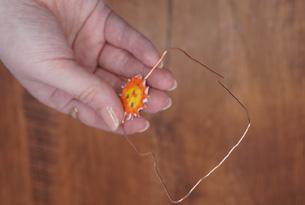
Put a strip of double-sided tape on the back of each lion. Stick two lions back-to-back on one side of the wire, and the other two on the opposite side.

Put a piece of double-sided tape on the bottom of the battery. Stick Daniel onto it so he’s standing tall.

Place the magnets on the negative (-) side of the battery to make a strong base.

Carefully place the indentation in the wire, on the plus (+) end of the battery. The two open sides of the wire should be touching the magnets.

The magnet creates an invisible force called a magnetic field, and the battery provides electricity. When the wire touches the battery and the magnet, electricity flows through it, giving it a little push. This push makes the wire spin all by itself!



-Printed Template (on Cardstock) -Assorted Markers -13” Metal Wire -Stackable Small Magnets, stacked to just under an inch (0.8”)
Once the wire is balanced and touching the magnets, the lions should spin around Daniel—just like the miracle in the lions’ den! -Double Sided Tape -AA Battery -Scissors -Tape

By Jamie Geller
• Canola Oil Cooking Spray
• 2 eggplants, unpeeled, sliced into 1/2 inch rounds
• Kosher salt
• 1/4 cup olive oil
• 1/4 teaspoon freshly ground pepper
• 1 (8 ounce) container feta cheese, crumbled
• 6 on-the-vine tomatoes, seeded and chopped or 1 (16 ounce) can chopped tomatoes, drained
• 1 green pepper, seeds and ribs removed, finely chopped
• 8 large basil leaves
Note: To seed tomatoes, cut tomato in half and gently scopp out seeds; or turn halves upside down over a bowl and gently squeeze until all the seeds have come out. Tomato seeds can be bitter and so can eggplant, so it is better to remove the seeds for these Stacked Eggplant Rounds.
Jamie Geller is the Chief Media and Marketing Officer at Aish. She is also a bestselling cookbook author, celebrity chef, television producer, and businesswoman. She’s the author of eight cookbooks and the founder of Kosher Media Network. • 40 MIN DURATION • 25 MIN COOK TIME • 15 MIN PREP TIME • 4-6 SERVINGS •

1. Preheat oven to 425°F. Lightly spray jelly-roll pan with cooking spray.
2. Place eggplant slices on paper towels and sprinkle lightly with salt. Let sit for about 5 minutes. Pat dry with more paper towels.
3. Lay the eggplant rounds in a single layer on a prepared pan. Brush with olive oil and season with pepper. Roast for 15 minutes; turn over and brush with oil. Continue roasting for 10 minutes more.
4. While eggplant is roasting, combine feta, tomatoes, and peppers in a medium bowl. Set aside.
5. Stack basil leaves, roll them up like a cigar, and slice them into thin strips (a chiffonade).
6. Place one slice eggplany on a serving platter. Spoon 1 - 2 tabelspoons feta mixture on top. Repeat layers. Finish with a few shreds basil. Repeat with remaining ingredients. Serve with Braised Carrots.





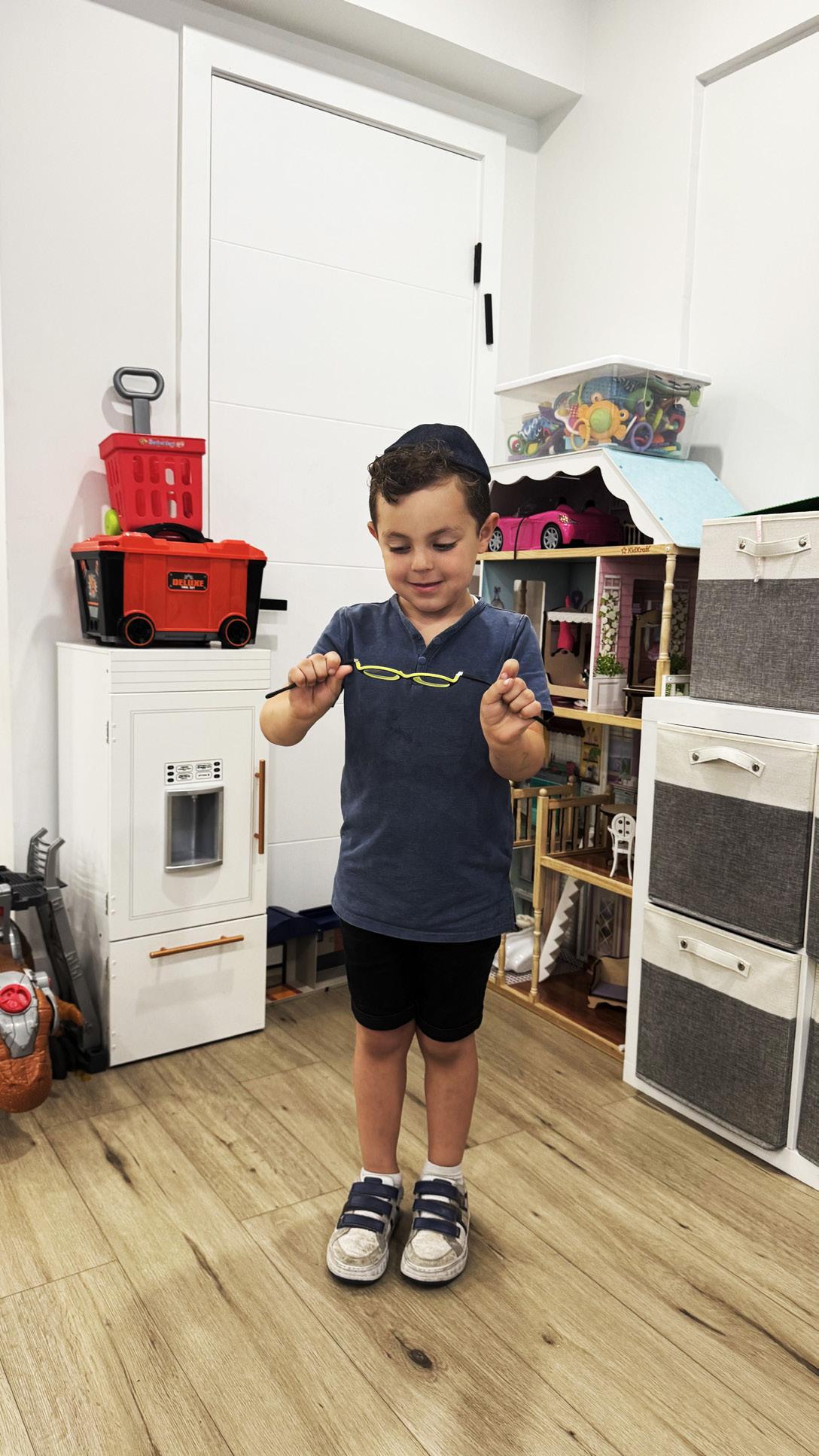














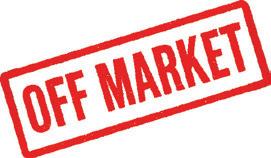
1,840,000 $ Call: 1 (305) 896-2029
Welcome to this beautifully renovated 5-bedroom, 3.5-bathroom home, 10 parking spots nestled in the desirable Davis Isles community. Completely gut-renovated in 2022, this luxurious residence boasts 2,750 sq. ft. plus 607 SQF detached garage of living space, offering elegance, comfort, and direct ocean access. – Walk to multiple Shuls (8–15 min) – 140 ft. canal frontage on nearly ½ acre – 3 fixed bridges to ICW; 55' clearance at I-95 – Custom finishes, deep pool, chef’s kitchen w/3 sinks – Detached garage w/ RV parking + 2BR unit plans – Grand master bath w/ double shower – Smart home tech, dual HVAC & water heaters – Spacious indoor/outdoor living, ideal for entertaining and Shabbat




























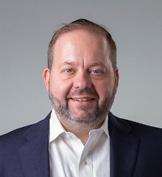
In the aftermath of recent challenges, Israel’s real estate market presents unique investment opportunities that many overseas investors may overlook. As an urban renewal specialist with extensive experience in the Israeli market, I’ve identified a particular segment that offers remarkable potential: older apartments slated for urban renewal projects.
Urban renewal, known in Israel as “Pinui-Binui” (evacuation-reconstruction), represents a nationwide initiative to modernize aging housing stock. These government-backed programs transform outdated buildings into modern residential complexes, significantly enhancing property values and revitalizing entire neighborhoods.
What makes these properties exceptional investment opportunities is their built-in value appreciation mechanism. When an older building enters an urban renewal program, its transformation is essentially guaranteed. The original apartment owners typically receive newer, larger units in the renovated building, with developers covering construction costs in exchange for building rights to construct additional units.
“The value increase is practically written into the process,” I explain to my American clients. “You’re purchasing an asset that has a predetermined growth path, backed by government policy and developer commitments.”
By Yitzchak Steinberg, Attorney at Law
The investment logic is compelling: older apartments in renewal-designated areas are available at relatively low price points compared to newer Israeli properties. Yet, upon project completion, investors receive brand-new, larger apartments in modernized buildings with amenities like parking, elevators, security systems, and green spaces.
This transformation typically doubles the property’s market value, creating an investment vehicle with both reasonable entry costs and exceptional appreciation potential.
For Jewish Americans looking to establish a connection to Israel while making a sound financial decision, this represents an ideal opportunity.
Case Study: Tel Aviv Periphery
Consider a recent project in Bat Yam, a coastal city adjoining Tel Aviv. Investors who purchased modest 60-square-meter apartments for approximately $300,000 received new 90-square-meter units valued at over $600,000 upon project completion. The neighborhood itself underwent a renaissance, attracting young professionals and families with stronger economic backgrounds.
Beyond physical improvements, urban renewal catalyzes demographic shifts that further enhance property values. Newer, upscale buildings naturally attract residents with higher socioeconomic status, improving the neighborhood’s profile and creating additional value appreciation.
“When you invest in an urban renewal property, you’re not just betting on a building upgrade,” I emphasize. “You’re investing in a community transformation that creates a
virtuous cycle of appreciation.”
For Jewish Americans considering an Israeli property investment, timing is particularly advantageous. Current market conditions offer reasonable entry prices, while the renewal programs provide built-in protection against market fluctuations. Even investors who don’t plan to relocate to Israel can benefit from this unique wealth-building opportunity.
“A smart investor recognizes that you don’t need to see yourself living in Israel in the immediate future to benefit from its real estate potential,” I advise my clients. “Urban renewal properties represent a distinctive opportunity to establish a connection to Israel while making a prudent investment decision.”
Israel’s urban renewal programs offer a rare combination of reasonable initial investment, government-backed development, and virtually guaranteed appreciation. For Jewish Americans looking to diversify their investment portfolio while strengthening their connection to Israel, these properties represent hidden gems in plain sight—older apartments today that will transform into premium real estate assets tomorrow.
Yitzchak Steinberg is a legal expert specializing in representing foreign residents in Israeli real estate transactions. Over the years, he and his team have successfully guided thousands of international buyers through property acquisitions in Israel. His extensive experience spans clients from across the globe, making him a trusted advisor in navigating the complexities of Israeli real estate law for non-residents.
office@ys-law.co.il +972-2-5002923 Watsapp: 646-266-9817
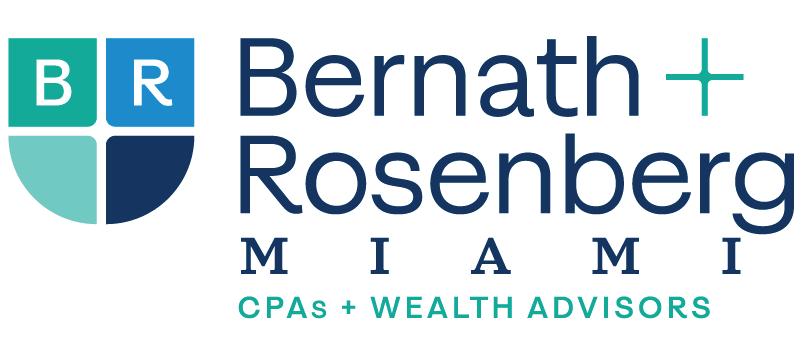
We like to believe that our best decisions, especially financial ones, are guided by logic. In the world of business and investing, we read balance sheets, run numbers, compare comps, and analyze returns. Yet sometimes, even the best in the industry make decisions not with their heads, but with their hearts. And most of the time, that’s how it should be. But even the most disciplined investors fall into the trap of ‘emotion’. Just ask Warren Buffett.
In 1964, Buffett was a rising investor known for finding undervalued companies. One such company was Berkshire Hathaway - a struggling textile manufacturer with outdated machinery and a grim outlook. At the time, Buffett owned about 7% of the company and negotiated to sell his shares back to the company for a reasonable profit at $11.50 apiece - a deal he verbally agreed to with the CEO. But when the paperwork came through, the offer was twelve and a half cents lower per share.
It was a small slight, but a vital one. Buffett felt disrespected. He felt the CEO had gone back on his word. Rather than let it go, he responded by not only not selling but also buying more shares. It wasn’t necessarily about the money - it was about principle. Within a year, he owned a controlling interest in the company, and his first move after controlling the board was to fire the CEO.
Years later, Buffett would call this one of the dumbest investments he’s ever made. Not because of how it turned out, but because
By Shmuel Shayowitz
of why he did it in the first place.... He let emotion drive the decision. The textile business was failing, competition was growing, margins were shrinking, and it had no real future. Out of loyalty to the workers and a sense of responsibility, he kept it running for another 20 years before finally shutting it down.
The only reason the story has a happy ending is that Buffett used the shell of Berkshire Hathaway to invest in better businesses - starting with insurance companies, banks, and then giant brands like Dairy Queen, Coca-Cola, and Apple. The returns on those investments, compounded over decades, turned a reactionary decision into one of the greatest financial stories of all time. That’s how Berkshire became what it is today.
However, the key lesson remains: making decisions out of emotion rarely leads to the best outcomes. Buffett succeeded despite his passionate reaction, not because of it. Even Buffett knew he got lucky. Most people don’t get that kind of margin for error. Most of us don’t get to accidentally build a $900 billion empire because we got offended. For the rest of us, emotional decisions tend to be expensive - and not in a good way.
In my line of work, I see emotional decision-making all the time. Buying real estate, investing in an asset, or making a financial move tied to a dream or family vision aren’t always black and white. That’s why I always remind clients that just because something feels right, it doesn’t mean it makes
sense financially. The key is recognizing when emotion is influencing the decision and making sure it doesn’t override reason.
Over the years, I’ve seen clients fall in love with a deal that doesn’t quite add up financially. It happens … and it’s usually driven by emotion. That’s why I always push to separate feelings from strategy. Easier said than done, especially with big decisions and when money is involved. I always make sure that my clients look at the numbers, review the risks, and have honest conversations. When emotion is acknowledged and not mindlessly followed, it’s not being reckless - it’s being intentional. My hope for these clients (and you know who you are) is that your returns far exceed even those of Warren Buffett’s.
Would you rather be right on paper - or right in hindsight? I’d love to hear your answer! Please let me know if you have a good “Would you rather” question, and we will highlight your submission.
Shmuel Shayowitz (NMLS#19871) is a highly regarded Real Estate & Finance Executive, Writer, Speaker, Coach, and Advisor. He is President and Chief Lending Officer of Approved Funding, a privately held national mortgage banker and direct lender that has facilitated over $3 billion in mortgage funding. Shmuel has over twenty years of industry experience, holding numerous licenses and accreditations, including certified mortgage underwriter, licensed real estate agent, residential review appraiser, and accredited investor, to name a few. Shmuel has successfully navigated through many changing markets and business landscapes, making his market insights and experience well-coveted within the real estate industry. He can be reached via email at Shmuel@ approvedfunding.com.







